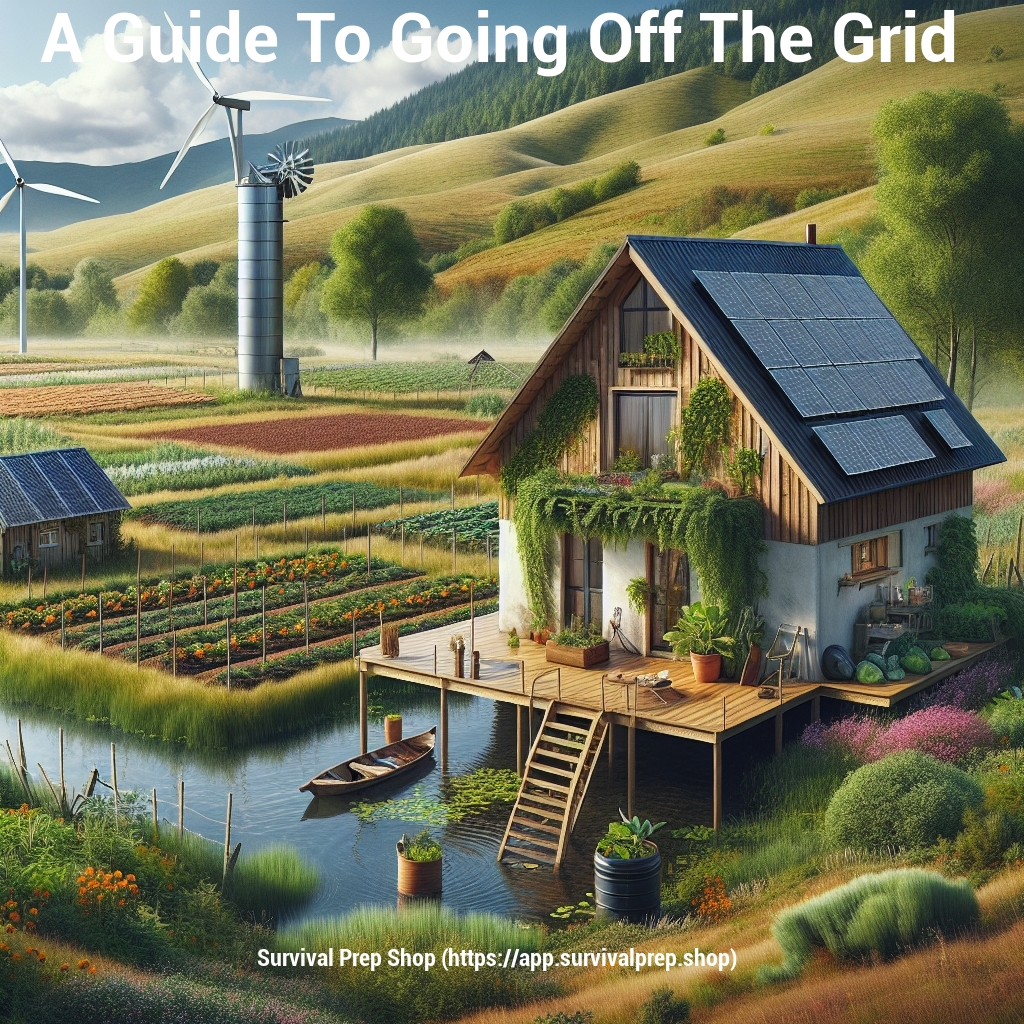
Hello everyone, and welcome to the Survival Prep Shop.
I'm TK, and I'm excited to share my perspectives on today's vital survival strategies. Just a reminder, these ideas represent my personal experiences on this path of readiness.
We like to think that we live independent lives – that we're the masters of our own fate. But the truth is that when we live on the grid, we're dependent on the state we live in and the government to keep things running smoothly.
When things run smoothly, we enjoy a comfortable and convenient life. But if something happens to disrupt that grid, then what we depended on will come crashing down.
When you depend on anything else but your own resources, you can't count on it always being there for you. That's why you always need to find a way to live off the grid.
What Does Off the Grid Mean?
When you live on the grid, it means that everything in your home is usually all connected. You get the electricity to power your home from an electric company or a co-op.
It means that you get the heat for your home from a utility company if you use natural gas. If you have city water connected to your house, you're living on the grid.
If you have a home telephone service, it means that you're also on the grid. All of these modern conveniences are supplied by someone other than yourself. You're at their mercy if they suddenly shut you off or a SHTF situation happens and they can no longer supply you with these services.
When you go off the grid, it means that you decide that you're going to forego services that are supplied to you – and instead, you're going to make your own energy to power your needs.
Going off the grid requires patience and planning. When you decide that you're through relying on someone else to make sure that you stay connected, you must have a plan in place that will meet your needs.
Some people slowly change one area of grid-dependent living at a time before focusing on the next area. One of the reasons that they do it slowly is because there are some supplies that you need to get and you will need to be able to afford these.
Others choose to go completely off the grid and have the money to be able to do that. How you can afford to do it isn't what's important. It's only important that you recognize the need to create your own electricity and other utility needs.
Once you've found a way to create the renewable resources that you need to use and you're completely creating your own support, your home will be self-reliant and you will be effectively off the grid.
Even with all of the stuff going on in the world and knowing that the grid isn't always reliable or safe from terroristic attack, some people just don't see the need to live off the grid. But there are several reasons for not relying on the grid.
Why You Never Want to Rely on the Grid
There are new terrorist attacks weekly and sometimes, it seems that these attacks are happening almost daily. In many of these attacks, what gets hit is whatever will cripple the economy, whatever will obstruct communication and whatever will hit the people where it hurts most.
The grid is what's most vulnerable to attacks. When most people think of the grid, they think in small terms, such as how it will affect them within their home. They know if the power plants are hit, then they're going to be without power.
But when a grid is attacked, it's never based on how it will affect individuals in their homes. It's planned based on how the fallout will affect entire cities and even states.
For example, if a power plant is disabled, it doesn't just inconvenience you by shutting off your power. It also shuts down gas stations and banks. Traffic lights go out.
Grocery stores can't run. People can't get the supplies that they need. Government buildings can't operate. The infrastructure of cities relies on the grid. So when someone (or something unintentional like a solar flash) wants to cripple an area, they'll target what will cause the biggest disruption.
Plus, when you rely solely on the grid, you
